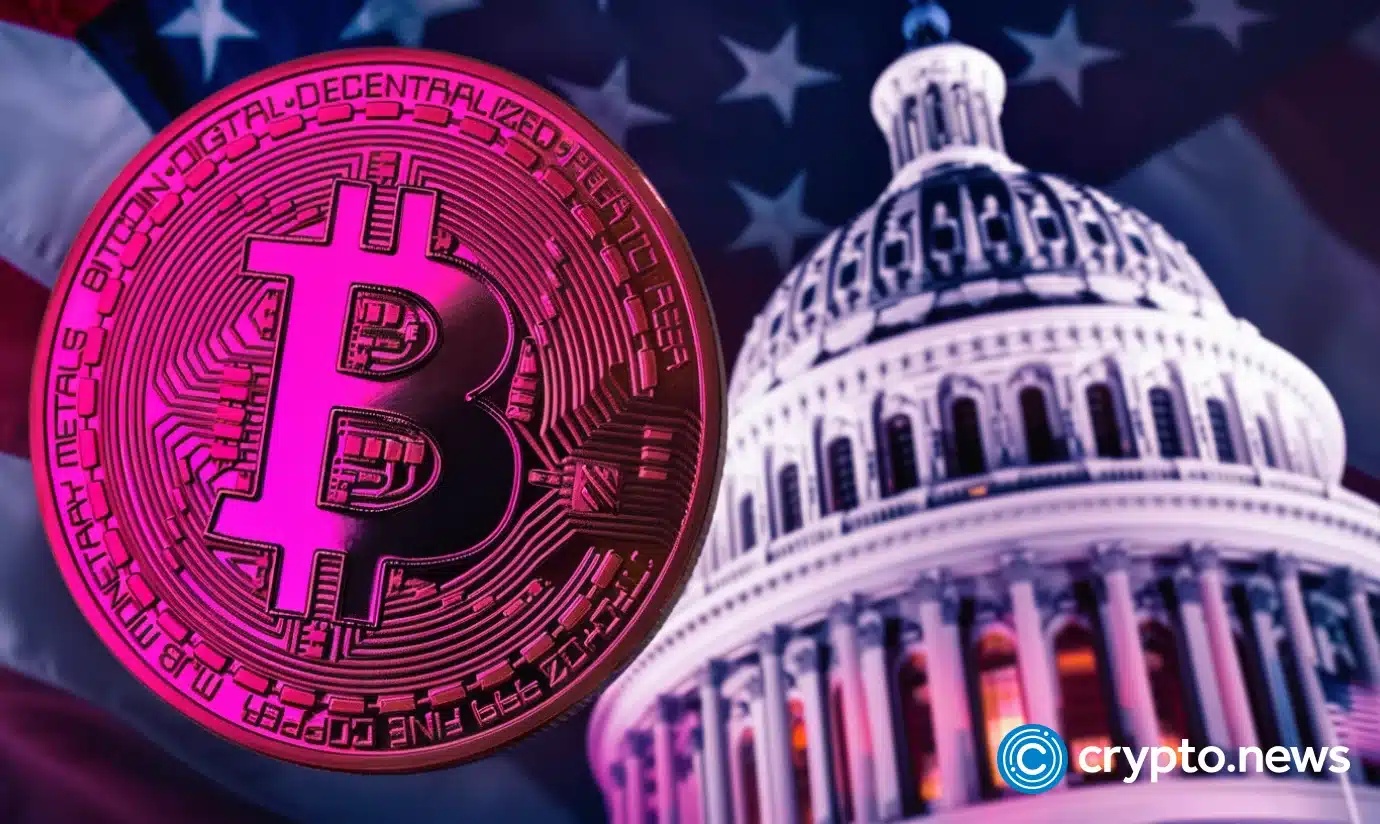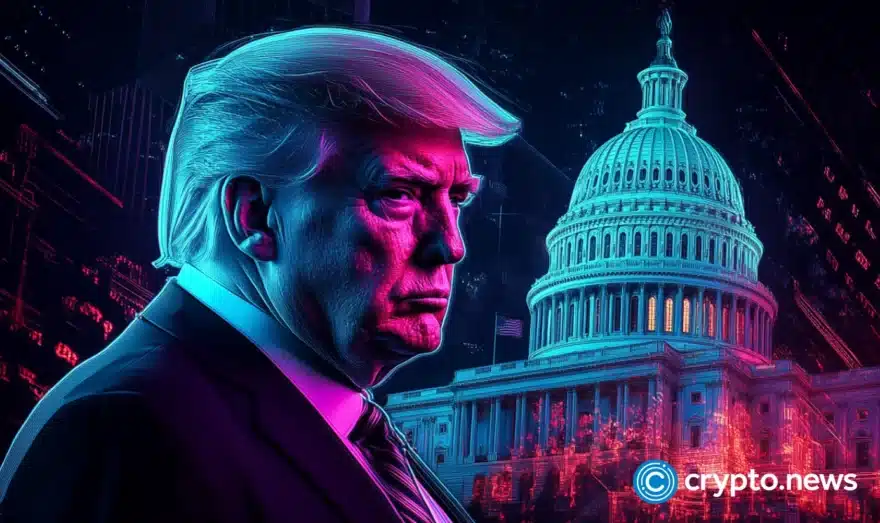Ex-senior White House exec: Bitcoin reserve bill could be a ‘disaster in the making’

As Senator Lummis pushes for Bitcoin to stabilize the U.S. dollar, Moe Vela warns of the risks. Read on.
During the Bitcoin 2024 conference in Nashville on July 27, US Senator Cynthia Lummis proposed that the U.S. government consider Bitcoin (BTC) as a strategic reserve asset to stabilize the dollar’s value and counter inflation.
In a follow-up to her initial announcement, on July 31, Senator Lummis officially introduced the Bitcoin Strategic Reserve bill. This legislation aims to direct the U.S. government to establish a reserve fund specifically for Bitcoin, ensuring it is held securely across various geographic locations.
The plan includes the government purchasing Bitcoin over five years and holding these assets for at least 20 years with the sole purpose of reducing the national debt, which has surpassed $35 trillion as of August 1. Lummis suggests that this reserve can help cut the U.S. national debt by half by 2045.
At the same conference, Donald Trump and independent presidential candidate Robert F. Kennedy Jr. also supported the idea of a U.S. Bitcoin reserve.
Trump pledged not to sell the government’s Bitcoin holdings, while Kennedy advocated for a more aggressive approach, suggesting the purchase of 500 bitcoins daily until a reserve of 4 million bitcoins is accumulated.
Despite the political backing, Lummis acknowledges that her legislation is unlikely to pass before the 2024 elections. However, the rising political interest in Bitcoin signifies a shift from the previous stance of the government.
Let’s delve deeper into this bill, its potential implications, and the broader context of Bitcoin’s role in the US economy.
Decoding the bill
The “Boosting Innovation, Technology, and Competitiveness through Optimized Investment Nationwide Act of 2024,” also known as the “BITCOIN Act of 2024,” outlines a detailed plan to integrate Bitcoin into the U.S. financial system.
A key component of the bill is the Bitcoin Purchase Program, which mandates the annual purchase of up to 200,000 Bitcoins over five years, totaling 1,000,000 Bitcoins.
Once acquired, these Bitcoins will be held in the Strategic Bitcoin Reserve for at least 20 years to ensure stability and security amid market volatility. During this period, the Bitcoins will be used exclusively for retiring federal debt instruments.
The bill claims that the Secretary of the Treasury, in consultation with the Secretaries of Defense and Homeland Security, will implement advanced physical and digital security measures to protect the reserve.
To maintain accountability, the“BITCOIN Act of 2024” requires regular monitoring and auditing, along with a quarterly Proof of Reserve system. This system will involve public cryptographic attestations and independent third-party audits to verify the holdings.
The bill also addresses the management of digital assets from Bitcoin forks and airdrops, stipulating that any new assets acquired through these mechanisms be retained in the Strategic Bitcoin Reserve for at least five years to ensure proper accounting and storage.
Additionally, it allows for voluntary state participation. States can choose to store their Bitcoin holdings in segregated accounts within the Strategic Bitcoin Reserve, benefiting from federal security and management protocols while retaining full control and legal title over their assets.
To manage the costs of setting up and maintaining the Strategic Bitcoin Reserve, the bill suggests using funds available within the Federal Reserve System.
These funds also include surplus earnings that are usually given to the Treasury. It also considers reevaluating the value of gold certificates held by the Federal Reserve to help fund the reserve.
What do experts think?
To gain a deeper understanding of the potential impact of Senator Lummis’s Bitcoin Strategic Reserve bill, crypto.news spoke exclusively with Moe Vela, an American attorney and political advisor.
Vela is the first Hispanic to serve in two senior executive roles in the White House, first during the Clinton administration as Chief Financial Officer and Senior Advisor for Latino Affairs in the Office of Vice President Al Gore, and later during the Obama administration as Director of Administration for Vice President Joe Biden.
Vela is unequivocally critical of Lummis’s proposal, describing it as “a disaster in the making.” He argues that investing taxpayer money in Bitcoin, a cryptocurrency he views as “backed by literally air and whimsy,” would be one of the most irresponsible governmental actions he has encountered in his public service career. Vela points out:
It demonstrates that the Senator and other bitcoin enthusiasts do not fully understand that Bitcoin is too risky, declining in market share, has no organizational infrastructure, and its anonymity literally means she is suggesting our nation co-invest with the possibilities of Kim Jong Un, Vladimir Putin, or other nefarious characters or organizations.
When asked whether the Republican agenda supporting cryptocurrency is a legitimate stance or a move to destabilize Democrats, Vela is skeptical. He suggests that the GOP’s advocacy for crypto appears insincere and more like political pandering:
The GOP stance on crypto would be viewed as more sincere and genuine if it wasn’t so blatantly pandering to a vital pool of voters. When you are recommending investing taxpayer money in an assetless crypto and calling for little to no regulation after all the crypto folks who are in prison, it’s hard to take them seriously and easy to see it for what it really is—political bluster.
Vela’s skepticism extends to the potential economic impacts of adding Bitcoin as a reserve asset. He argues that the cons far outweigh any possible pros, stating bluntly:
Frankly, I can’t think of a pro to adding BTC as a reserve asset. It would be irresponsible and idiotic to do so.
Instead, Vela advocates for focusing on cryptocurrencies backed by tangible assets and regulated by bodies like the SEC:
We in the crypto community should be encouraging our government to focus on cryptocurrencies that are backed by tangible assets, report to the SEC, and strive every day to be compliant with the few parameters and policies that exist thus far.
The road ahead
The U.S. national debt is indeed spiraling out of control. If left unchecked, it could lead to severe economic consequences such as higher interest rates, reduced public investment, and a potential loss of investor confidence.
The Congressional Budget Office projects that without key policy changes, the debt could reach 166% of GDP by 2054, further exacerbating the U.S. economic troubles.
Bitcoin, with its impressive compound annual growth rate (CAGR) of 42.3% over the last five years, presents a unique opportunity to mitigate the rising debt. However, it is not without its risks. Bitcoin’s volatility and the nascent stage of its market infrastructure are crucial factors to consider.
Despite criticism from figures like Moe Vela, not everyone shares his view. Sam Lyman, Director of Public Policy at Riot Platforms, views Lummis’s efforts as essential for the Bitcoin community and believes her proposal could pave the way for innovative financial strategies.
However, the success of such a proposal depends on various factors, including the implementation of strong security measures, regulatory clarity, and the ability to manage the inherent volatility of Bitcoin.
As the debate continues, it is clear that Senator Lummis’s proposal has sparked a discussion about the future of digital assets in national finance. Whether this innovative approach will prove to be a solution to the national debt crisis or a risky gamble remains to be seen.















